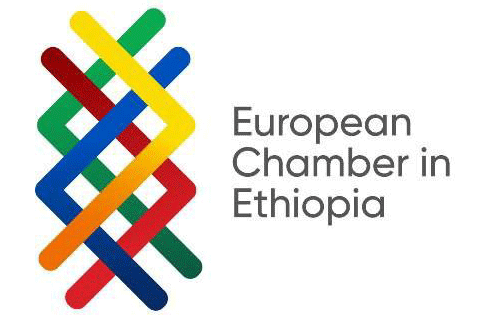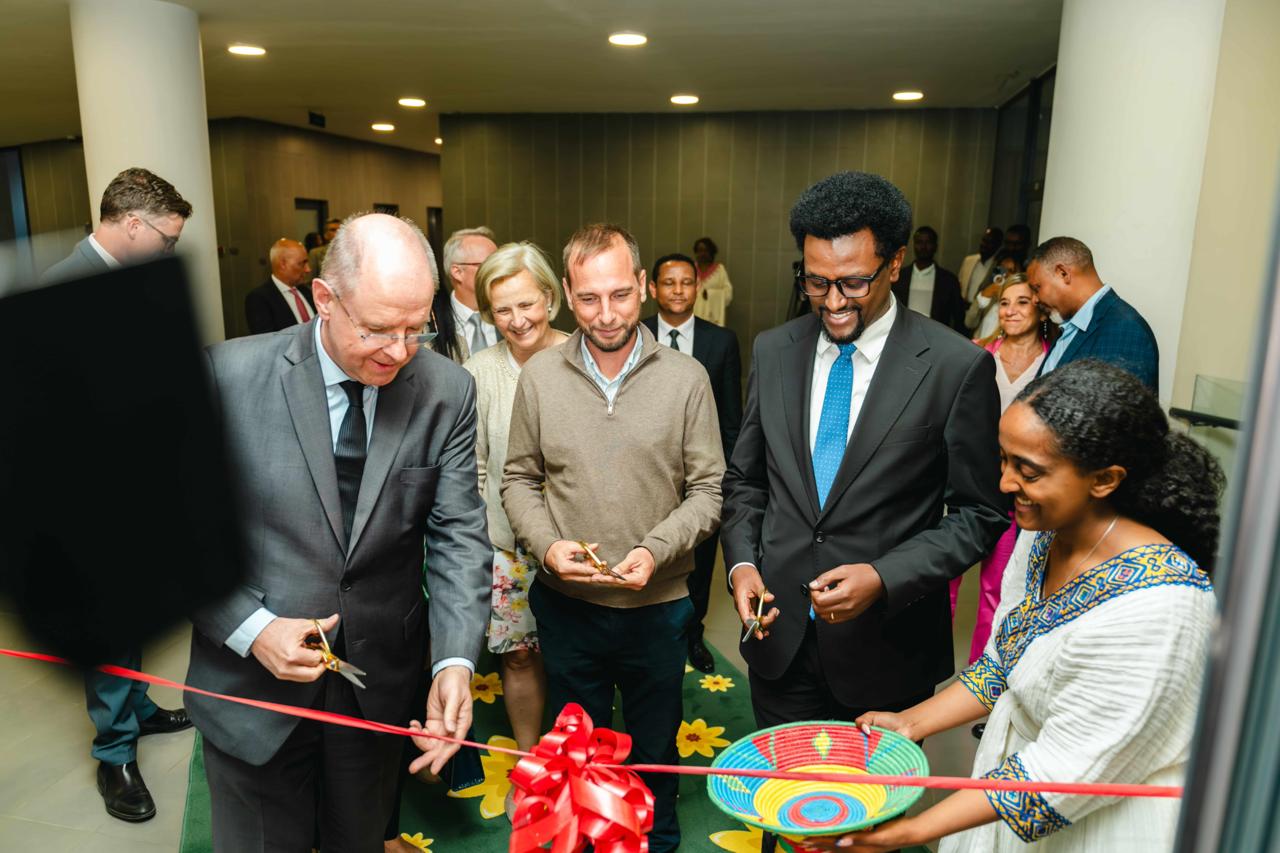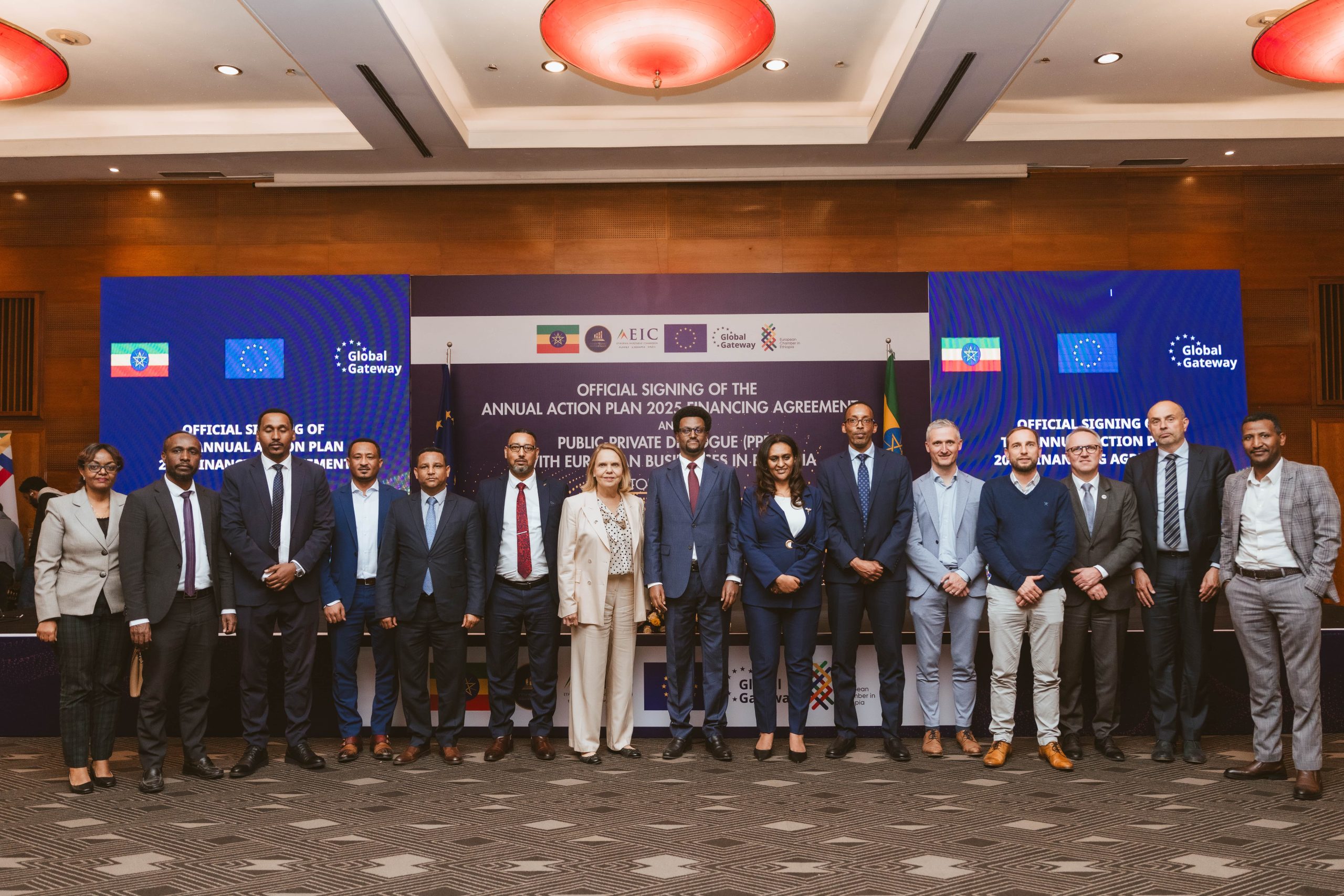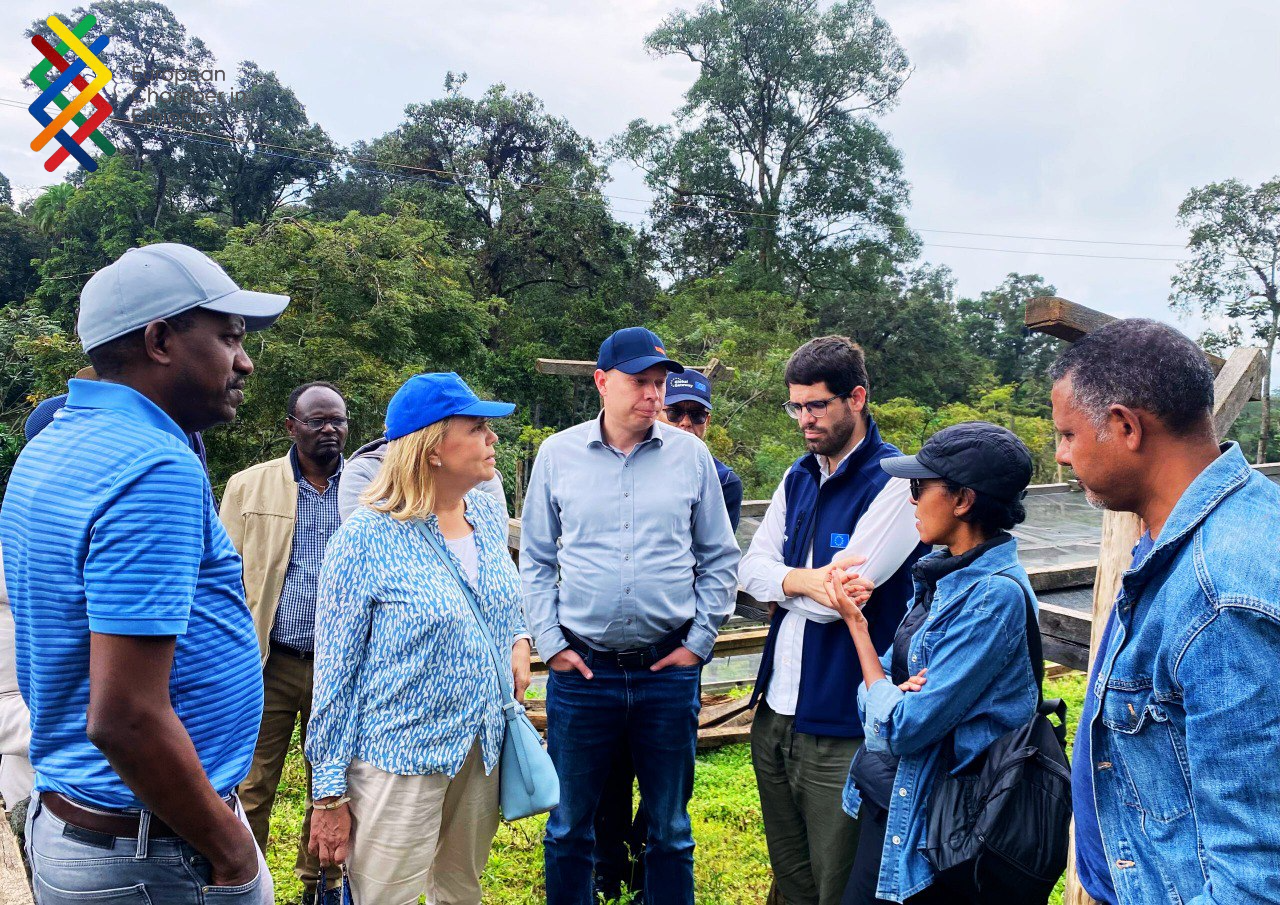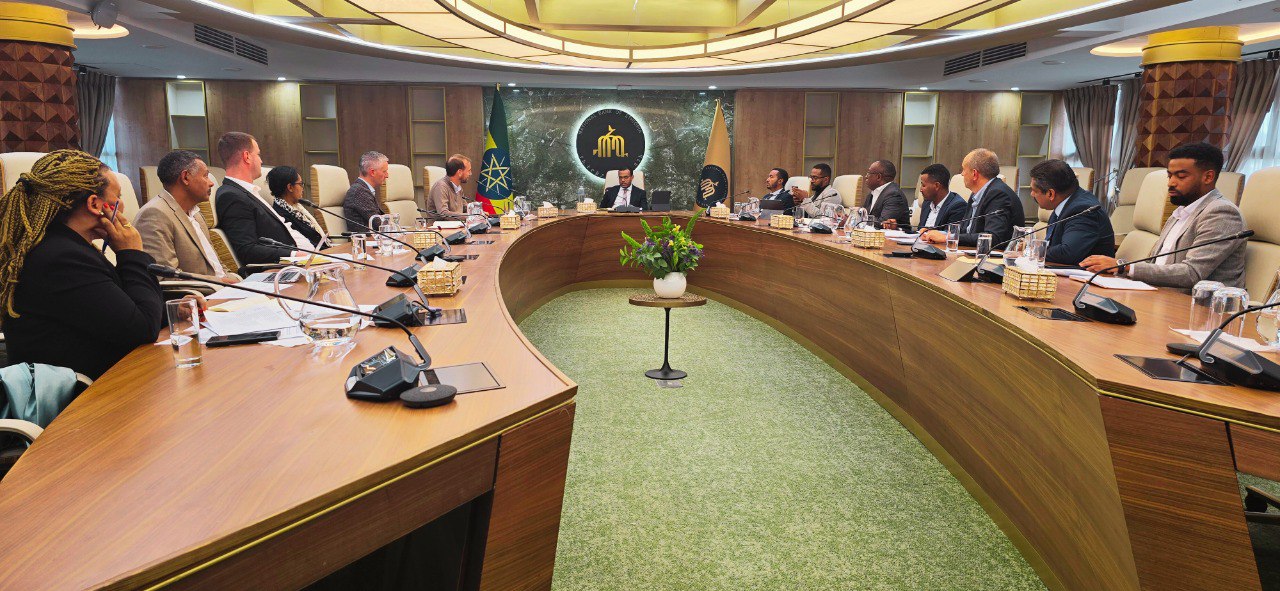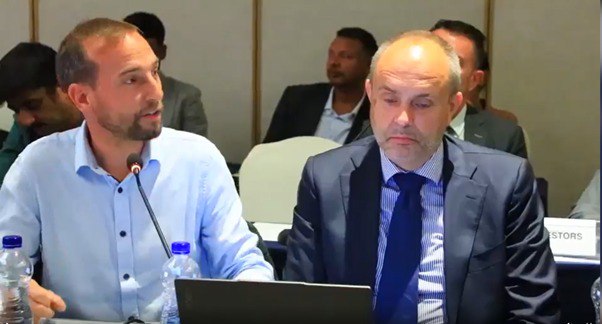
Photo Credit: Ethiopian Investment Commission
EIC Organized PPD Discusses Investment Barriers and Recommendations
Ahead of the Invest Ethiopia 2025 Forum, the Ethiopian Investment Commission led public-private dialogues to identify key investment barriers and develop reform recommendations to strengthen Ethiopia’s business environment.
The Ethiopian Investment Commission (EIC), in collaboration with key government bodies and development partners, organized a focused public-private dialogue (PPD) series to address major constraints facing investors in the country. Held as preparatory sessions for the ‘Invest in Ethiopia 2025’ High-Level Business Forum, the PPD meetings, conducted on April 9 and April 11, brought together government officials and private sector stakeholders to tackle themes focusing on customs and taxation, and investment protection and legal predictability.
The second session, focused on investment protection, highlighted six priority bottlenecks identified through consultations with business associations and foreign chambers, such as the European Chamber in Ethiopia, the American Chamber and the Ethiopian Netherlands Business Association. These bottlenecks were assessed using a structured matrix that measured both their impact on business operations and the feasibility of resolving them.
At the top of the list was the lack of formal mechanisms for private sector engagement in policymaking. It was noted that current public-private engagement mechanisms are ad hoc, fragmented, and non-binding, resulting in limited private sector participation in policy initiation, design, and monitoring. This leads to implementation gaps, lack of ownership, and unpredictability in the business environment. Stakeholders called for the creation of permanent advisory councils that include business representatives in policy formulation and implementation oversight. This recommendation received the highest priority score, indicating both its high impact and feasibility. EIC and the Ministry of Justice are the lead agencies responsible for completing the task. Speaking during the event, Ben Depraetere, Board Chair of the European Chamber in Ethiopia said, “The private sector is not merely a participant in the Ethiopian economy. It is a partner in the ongoing reform agenda. we appreciate the efforts of the government to liberalize key sectors, including telecom, banking, and logistics.”
The second-highest priority impediment identified was the lack of rule clarity across different levels of government. Investors often face overlapping and sometimes contradictory regulations from federal, regional, and local authorities, ranging from inconsistent land policies and ad hoc taxes to abrupt licensing delays and account seizures. “Businesses seek a transparent, predictable, and level playing field in tax administration,” said Ben Depraetere. “Clarity on Transfer pricing and double tax treaties are essential for businesses to operate confidently. Furthermore, we call for professional and fair audit procedures and a more workable tax appeal system, one that does not jeopardize the liquidity or survival of companies during disputes.” A clear governance framework that defines institutional responsibilities, supported by a federal-regional investment coordination platform and rapid-response mechanisms for regulatory conflicts was proposed. The Prime Minister’s Office, regional governments, and the Ethiopian Investment Commission have been designated to lead this reform effort.
Another critical challenge discussed was the absence of structured support for investments affected by conflict. Businesses operating in regions such as Amhara, Tigray, Afar, and Oromia have experienced significant losses due to destruction, looting, and prolonged operational disruptions. Yet, no comprehensive government program exists to rehabilitate or incentivize their recovery. Stakeholders recommended the development of a targeted rehabilitation and restart package, which would include tax relief, expedited financing, customs waivers, and technical assistance. Coordinated by the EIC, Ministry of Peace, and regional governments, this initiative is considered essential for restoring economic stability in post-conflict areas.
Participants also raised concern over the prevailing regulatory mindset among public institutions, which often prioritizes control and enforcement over service and facilitation. This punitive approach, reflected in inspections, audits, and licensing, creates a climate of mistrust and deters investment. A shift toward a more facilitative and development-oriented public sector was strongly recommended. Proposed measures include training public officials on investment facilitation, introducing performance indicators linked to investor satisfaction, and fostering joint public-private capacity-building initiatives. The Ethiopian Investment Commission will play a central role in advancing this cultural shift.
The fifth issue centered on property rights and the rule of law, with reports of arbitrary actions by local authorities, such as bank account freezes, unlawful detentions, and business closures, raising serious red flags for investors. These actions often lack due process and erode confidence in Ethiopia’s legal and investment frameworks. To safeguard investor rights, stakeholders called for legally binding protocols requiring judicial oversight for property-related actions, along with better coordination between local and federal authorities. Training for regional officials and collaboration with the judiciary were also emphasized. The Prime Minister’s Office, Ministry of Justice, and Federal Police have been tasked with leading efforts to address this issue.
Finally, inconsistencies in land lease renewals and resource taxation emerged as a persistent concern for investors across sectors such as agriculture, logistics, mining and tourism. Many cited unclear lease terms, abrupt tax changes, and misaligned federal-regional practices as major deterrents to long-term planning. To bring predictability and coherence, stakeholders recommended the establishment of a National Investment Land Policy Framework, transparent lease schedules, and a harmonization forum to align tax regimes across levels of government. The Ethiopian Investment Commission, in coordination with the Prime Minister’s Office and regional authorities, will oversee the implementation of this reform.
The PPD discussions aim to deliver a unified set of policy recommendations to be presented at the Invest Ethiopia 2025 Forum, scheduled for May 12–13 at the Ethiopian Skylight Hotel. The event is expected to convene over 700 participants, including investors, policymakers, and global business leaders, and mobilize more than US$3 billion in potential investment commitments.
By laying the groundwork for improved governance, accountability, and investor confidence, the PPD sessions are a critical step in Ethiopia’s broader effort to create a more predictable and supportive business environment.
latest News
EuroCham Launches a New Office and FDI Incubation Center
February 1, 2026
EU and EuroCham Sign Grant to Boost Ethiopia’s FDI competitiveness
November 22, 2025
EuroCham Networking Event Discusses New Income Tax Law
October 22, 2025
EuroCham Urges Reconsideration of EUDR Timeline
September 29, 2025
EuroCham Conducted Technical Discussions with Outgoing NBE Governor
September 17, 2025
